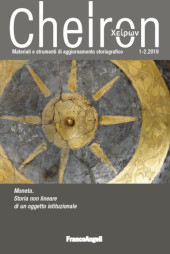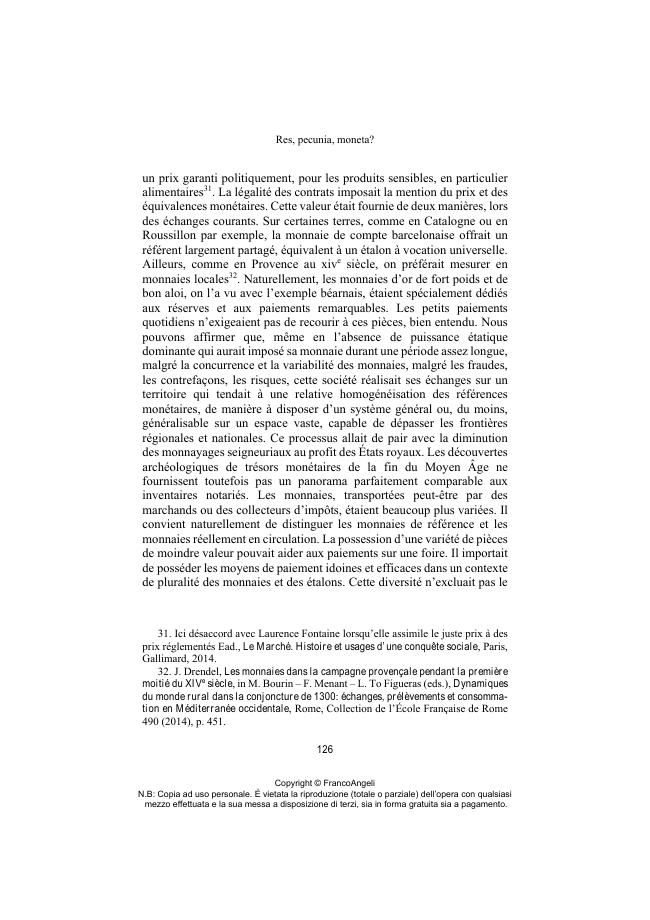Res, pecunia, moneta? : des choses garanties, des biens fongibles et d'autres moyens de paiements hétérogènes
111-141 p.
Analyzing the practices of the barata, we can understand the techniques which supported the trading system of the feudal society of the late Middle Ages. Transferring products and goods against a return value and satisfy both parties implied guaranteeing without immobilizing, finding payment instruments in a heterogeneous market. If the oppressive hoarding of Gaston Febus looks like to usurer's failure, using mobilizable treasures of redistributing lords ensures consumption through a kind of deposit bank and offers nonavaricious reserve and fluidity of expenses. To have transferable wealth remains perilous in this society of credit. Working in a network not only ensures friends partners and reputation but articulates heterogeneous means of payment when the liquidity would be lacking more than the cash. The credit does not only compensate for a relative monetary deficiency.
It founds a set of uniform writings, a nonfungible medium, equivalent to goods transferred, imperfect paper money, in interconnected but incompletely standardized spaces. Combining barata and mutuum when means of payment are not effective takes care on temporary insolvency which increases risk. However, it may be an antiusurious accusation against who does not respect fair price. Paying in kind is not really bartering. The exchange, generalized, is always monetized. The use of a currency of account and the theory of the fair price lead to hierarchy within the people's individual positions, according to the more or less risky relation with the things which support value and according to the social fragility of each actor, from the money changer to the usurer.
Immobilizing a few but enough money by efficient and legal solutions, using credit avoiding the risk of bankruptcy, by controlling the acceleration of transactions and the secondary markets: all these means allowed to establish dialectical relations between norm and practice, chivalrous and merchant culture. [Publisher's text].
-
Artikel aus derselben Ausgabe (einzeln erhältlich)
-
Informationen
ISSN: 1127-8951
THEMENBEREICHE
KEYWORDS
- Società feudale, baratto, moneta di conto, sistemi di pa-gamento, cultura cavalleresca e mercantile
- Feudal society, Barter, Account money, Payment systems, Chivalrous and mercantile culture



